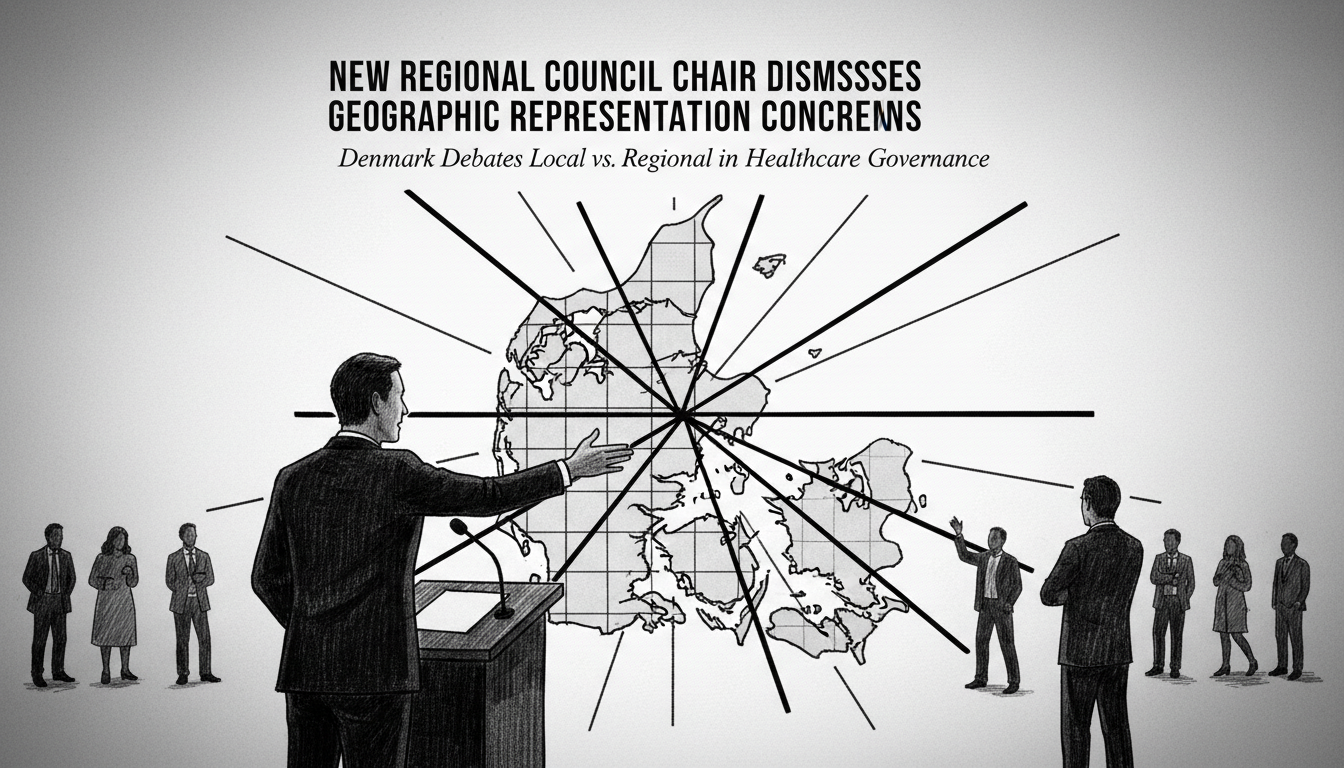A newly elected regional council chair in Denmark has sparked debate by declaring geographic location irrelevant to leadership capabilities. The official stated that living in Hadsten or Hvide Sande makes no difference to effectively representing an entire region.
This statement comes amid ongoing discussions about geographic representation in Danish regional politics. Three newly elected regional politicians disagree about how strongly they should fight for local interests within council chambers.
The healthcare reform continues to dominate regional election discussions across Denmark. Voters want assurance that their specific communities will receive adequate attention and resources.
Regional councils in Denmark manage substantial healthcare budgets and service delivery. These elected bodies make crucial decisions about hospital locations, specialist services, and local health initiatives.
The chair's comments reflect a tension between local representation and regional unity. Some politicians advocate fiercely for their specific municipalities while others prioritize broader regional cooperation.
This debate matters because regional councils control billions in healthcare spending. Where officials live can influence their understanding of local needs and transportation challenges.
Denmark's five regions face increasing pressure to balance efficiency with geographic fairness. Rural communities often express concerns about centralization reducing their access to services.
The political landscape shows clear divisions on this issue. Some representatives view strong local advocacy as essential while others see it as potentially disruptive to regional planning.
International readers should understand that Danish regional councils differ significantly from local municipalities. Regions focus primarily on healthcare while municipalities handle schools, elderly care, and local infrastructure.
This discussion has practical implications for healthcare delivery across Denmark. Decisions made about hospital specialization and service locations directly affect where patients must travel for treatment.
The new chair's approach will be tested in coming months as regional councils implement healthcare reforms. How these bodies address geographic equity will determine public satisfaction with regional governance.
Danish political experts note this tension between local and regional interests is not new. What makes the current situation notable is the chair's explicit dismissal of geography as a relevant factor in leadership effectiveness.
Regional elections recently concluded across Denmark with varying voter turnout. The outcomes will shape healthcare policy implementation for the next four years.

